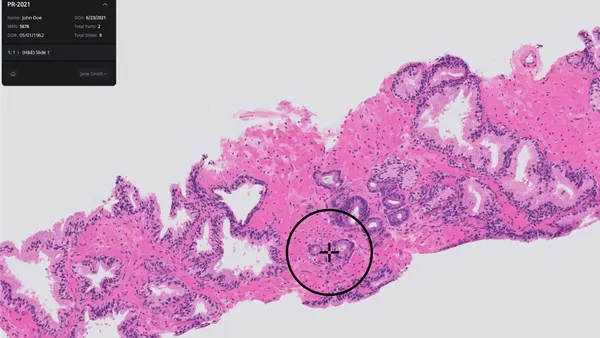Dive Brief:
- FDA on Monday provided a 2020 update on its yet-to-be finalized software precertification program as well as "learnings" from an ongoing pilot launched in 2019, which includes Apple, Fitbit, Johnson & Johnson and six other companies.
- The so-called Pre-Cert program is meant to fast-track digital health products to market by reducing certification hurdles for developers of software-based medical devices. The agency is working with pilot participants to define data models that will support the future program and help inform FDA on specific authorities needed to implement a "more effective, proactive, and efficient" regulatory framework, as its traditional approach for the regulation of hardware-based medical devices is not as well suited for software.
- While FDA says the pilot program is leveraging lessons learned over the past year for the next iteration of testing, some in the industry believe the agency's time on digital health efforts would be better spent moving forward its proposed AI/machine learning regulatory framework for software as a medical device.
Dive Insight:
The Pre-Cert pilot, which entered a formal testing phase last year, is focused on software as a medical device (SaMD), which the agency notes ranges from diagnostic software that allows a smartphone to view MRIs, to computer-aided detection software that performs image post-processing to help detect breast cancer.
While FDA is still working to test and build the yet-to-be finalized program, the agency faces major regulatory hurdles as it will need to go back to Congress to ask for the legislative authority to proceed. At this point, however, FDA has not determined what specific regulations and authorities it would need to make Pre-Cert a reality.
Bradley Merrill Thompson, attorney at Washington, D.C. law firm Epstein Becker Green, said the agency is "investing huge" amounts of time in developing the program, and argues that's problematic given the lack of statutory authority and the fact that lawmakers might not approve what ultimately emerges.
"Why fully develop a program without any authority, just in the hope that Congress might authorize not just precertification generally, but FDA's specific approach to precertification? It could be a huge waste of time," Thompson said.
Nonetheless, without providing a specific timeline in its update on Monday, FDA said it will continue to assess and evaluate the readiness of the Pre-Cert program before advancing to the next phases of development and "will consider obtaining legislative authority" to fully implement it as a new regulatory pathway for SaMD.
While FDA is considering what statutory changes might be needed for regulating SaMD as a result of the evolving Pre-Cert program, the AI Startups in Health Coalition on Monday released a position paper calling for a "more modest" regulatory approach to reform that they say could occur more swiftly and without the need to change the underlying statutes.
"We favor the agency aggressively moving forward with its AI/ML framework discussions, instead of investing more time on the precertification program," wrote the startup group, where Thompson serves as general counsel. The group contends the Pre-Cert program is "enormously complex" and will require significant revision to make sure startups are "not disadvantaged vis-à-vis established firms, among other problems with the current proposal."
"Honestly, that AI/ML framework has a whole lot more excitement behind it with an awful lot of folks in industry, especially startups involved in AI," Thompson said, urging FDA to "realign its priorities."












